

On the cover, Renee Bai, Chinese, history, and social science teacher, and Zhining Zhao; this page, English teacher Joseph Martinez.




On the cover, Renee Bai, Chinese, history, and social science teacher, and Zhining Zhao; this page, English teacher Joseph Martinez.

From the outset, school founder Endicott Peabody understood the importance of role models.
His emphasis on a school modeled after a family points to the profound influence of the faculty who work with Groton students. In Mr. Peabody’s era, teachers committed themselves to the thorough development of each student. In this respect, the past certainly has a hold on today’s Groton.
Some of the nation’s most prominent leaders in business, service, the arts, and politics—even a president—have attended Groton School. Behind our graduates’ success—decades ago, and today—are faculty members who encouraged, informed, pushed, supported, nudged, and inspired. They taught by example, in and out of the classroom.
When you choose to attend Groton School, you choose to join a community where a wide array of talented teachers will know you well. They will challenge you. And with their guidance, you will challenge yourself. Interaction between a teacher and a student is a critical part of anyone’s education. Come to Groton, and meet your mentors.
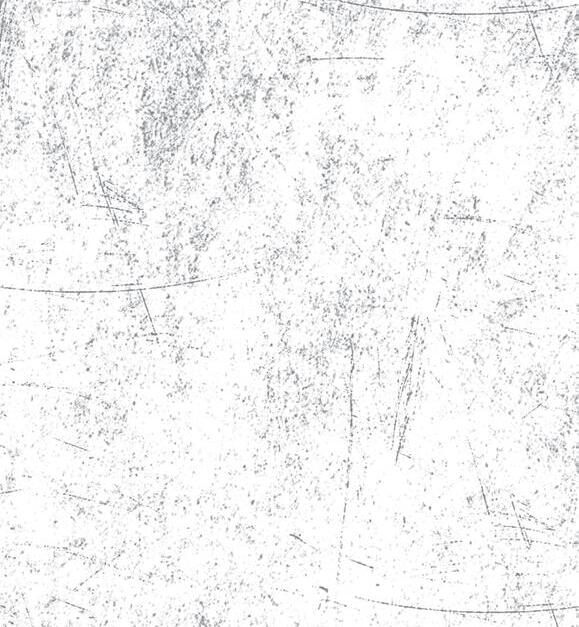
w. e. b. du bois
My original studies were in law, so when I came to Groton as a substitute French teacher, I was apprehensive. But I found that teaching was a way for me to share my culture. And the students were so young and full of curiosity that they forced me to re-evaluate myself. The give-and-take was fulfilling, and I’ve been here ever since.
It pushes you out of your comfort zone— it’s a way for your mind to work differently than it is used to working. That’s why we teach classes in the language itself. We want students to learn a living language, not a translation.

Embrace the new culture that you’re in without losing touch with your roots. Try everything—food, culture, sports, academics. And call your parents often to reassure them.
I love French cinema because . . .
It’s a reflection of French culture. And the pace is slow. American movies move quickly, and there’s more of a direct appeal to emotions. French movies are much more subtle. In French film, the ending isn’t always happy, and the bad guy doesn’t always go to jail. And the actors aren’t always gorgeous with perfect teeth.
WORDS OF WISDOM
Don’t forget who you are as teenagers. As you grow up, the world will get serious fast enough. But always, somewhere, keep a part of you young.
BA, Université Paris V René Descartes
LLM, Université Paris I Pantheon-Sorbonne, Paris
LLM, Boston University
Henry and Wendy Breck Award for Distinguished Teaching
Languages spoken: French, English, Spanish, Arabic, and Hebrew
International Community Coordinator
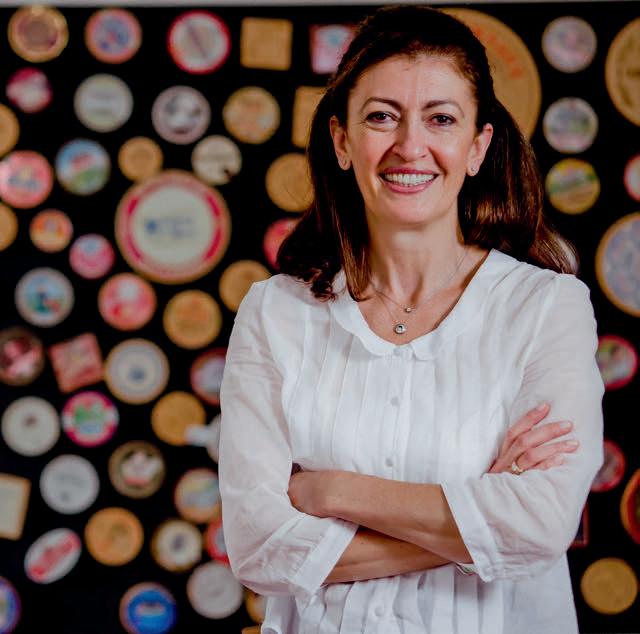
BS, Columbia University
MS, PhD, Civil and Environmental Engineering, University of California, Berkeley
Henry and Wendy Breck Award for Distinguished Teaching

I love being present for the moment when an idea becomes truly tangible for a student. It’s important for me that my students see math and science in their lives, and conversely, that they see themselves in the larger math and science communities. Watching students make real connections between their personal interests or experiences and a new concept can be quite magical!
In Environmental Science during our study of air pollution, we had had many theoretical discussions about sources of particulate pollution. Once we left the classroom to measure particulates around the Circle, it became clear that this was relevant to the class’s everyday lives. The students found more particulates around the Athletic Center on game days and quickly launched into a wonderful discussion about what they could do to prevent idling vehicles. Fingers crossed that we pay attention to these scientists!

In Mediterranean-type climates like Northern California, the dry season coincides with the summer and results in a water resource bottleneck that affects both terrestrial and aquatic ecosystems. Fog and groundwater provide relief to vulnerable vegetation and freshwater species. More accurate measurements help us understand the effects on the watershed.
I entered graduate school unsure of many things except for my love of learning. Several mentors encouraged me to share that love by teaching undergraduates and volunteering in local public schools. Very quickly, it became obvious that teaching would be the highlight of my graduate school experience.
There is a lot of beauty out there, from a Bach overture to the swirling geometric storms at the poles of Saturn. At a basic aesthetic level, everyone can appreciate the elegance of these things. Understanding the physical nature of the world adds richness that deepens my appreciation of that beauty.

A cleverly devised experiment is . . .
Thrilling! The distillation of passion, logic, imagination, and ingenuity that goes into a novel chemical synthesis or the elucidation of a biochemical signaling pathway makes scientific research endlessly exciting to read, learn, and practice.
Ultimate Frisbee?
There is an intensity and passion in the game that is tempered by a carefree camaraderie. Playing well requires stamina, speed, skill, and synergy—and I love working hard.
I play Frisbee with my advisees because...
Throwing the disc helps with the conversation. I’m not exactly sure why: maybe because when your concentration is divided between throwing, catching, and talking, you are less worried about what other people will think of you, or maybe it just gives you something to do if you don’t want to say anything.
WORDS OF WISDOM
Science is the exploration of the unknown and the mapping of the true nature of our world. How could that not be exciting?!
BA, Carleton College
PhD, Chemistry, California Institute of Technology; Postdoctoral fellow, genomics research, Harvard Medical School

Henry and Wendy Breck Award for Distinguished Teaching
Soccer and squash coach
Faculty advisor, Ultimate Frisbee Faculty-Sponsored Activity (FSA)
BA, Williams College
Crew coach
Advisor, Debating Society, Computer Science Club, Episcopal Services
Second Form Boys Dorm affiliate

Computer science has always been a discipline that lives at the intersection of math, philosophy, the natural sciences, and the arts, and I’ve really appreciated the way my study of CS has allowed me to see connections between those fields. And now, as tech becomes increasingly pervasive in our daily lives, more connections to history and sociology have started to emerge as well. I personally find it really exciting to think about how all of these pieces fit together, and I’ve found that thinking computationally has helped me make sense of things that I’d otherwise find fairly perplexing.
Groton is special because of the way in which it has fused together its legacy and traditions with its commitment to innovation and progress. St. John’s Chapel sits both literally and figuratively at the center of campus, and the school’s rooting
in its Episcopal heritage has made Groton a place where we can talk about the importance of diversity and inclusion from the perspective of our core values and history. This creates a sense of community that tends to attract students and faculty who are not just exceptionally talented but also really great people to be around.
What’s it like teaching at your alma mater?
It’s been an amazing experience so far. On the one hand, I get to echo my own teachers and, when I do that, I’m particularly mindful of the way in which I’m carrying Groton’s past into its present. On the other, the things I hear and learn from the current study body cause me to recollect fondly on my own experience as a student and occasionally cause me to re-evaluate my own views on what’s really important about a Groton education and where the school should be heading.

I certainly enjoy teaching novels such as Don Quijote de La Mancha and One Hundred Years of Solitude , but most rewarding is delving into poems, especially those written by Ida Vitale and Alejandra Pizarnik. There’s always great mystery at the center of a good poem. It’s like a black hole: one can only sense its core by observing the surrounding light. I find that teenagers are attuned to the subtle connections between the visible and the invisible.
I

T. H. White’s Th e Once and Future King. The entire first part focuses on education. Merlyn is not just a wizard but serves as Arthur’s tutor before he is crowned. The book presents important lessons on a variety of topics, from ethics to hawking, and contains all the clues to good teaching.
French philosopher Simone Weil once said that “attention, taken to its highest degree, is the same thing as prayer.” A good class feels this way.
In Spanish 2, while analyzing a short story in which different rooms in a house keep disappearing, I asked my students to think about something that has vanished inexplicably from our world. Someone replied: “Simplicity.” She was fifteen years old. These wonderful answers are not uncommon. Each time I enter my classroom, I say to myself: this is the realm of magic.
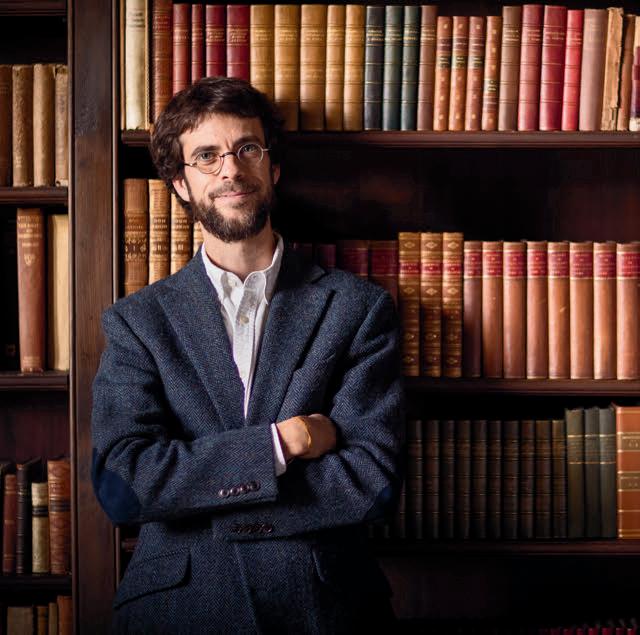
BA, Delhi University
MA, English, Delhi University
MA, Classic Modern English, University of London
Post-graduate Certificate in Education, University of Oxford

Peter B. Camp Chair in English and the Humanities
Henry and Wendy Breck Award for Distinguished Teaching
Leading Groton’s Diversity and Inclusion program, I’ve learned . . . That we are a product of our own histories and as such have blind spots and biases; that we need education on the ways we exclude; and that inclusion is something we need to engage in actively and not something we can be complacent about.
My culture’s influence . . .
I was born and raised in a country that is still wrestling with its colonial past, and I am acutely aware of the silences and gaps in literature. I recognize that what we read shapes who we are, and I believe it’s important to teach our students a balanced curriculum: that is, to teach literature that introduces them to different literary voices, traditions, periods, and cultures.

George Eliot’s Middlemarch because every time you re-read it you are moved by its beauty and wisdom and compassion;
Jhumpa Lahiri’s The Namesake because I admire its elegant exploration of our shifting world; and James Joyce’s Portrait of the Artist as a Young Man because it made me unlearn everything I had learned about language and words on a page.
Why teach at Groton?
To sit around a table of ten to twelve students eager to read a book and to talk about what makes us human is an English teacher’s idea of paradise!
For me, the inspiration comes from students in the classroom. I love to learn, and I learn from my students when I’m teaching them.
Four generations of my family have been teachers. In South Africa, I was arrested for anti-apartheid activities while in my mother’s classroom. I vowed always to carry out the educator’s mission. It’s such a privilege to be in the position to shape the future.

I love the arts. The arts remind us that we’re living rather than existing. My great-grandfather was a composer—I love classical music, jazz, blues. I also love sports. When we watch people do what they love, we’re inspired in return. And
I’m a huge activist for the underserved, the vulnerable, and those who don’t have opportunity.
They are intertwined. I was given the opportunity of freedom when I left South Africa. You can’t really give people freedom without giving them an education.
BS, University of Ibadan, Nigeria / MS, Chemistry, University of Kentucky
Desmond Tutu Social Justice Award / White House Distinguished Teacher / MIT Inspirational Teacher

Twenty-six years at Phillips Academy, Andover as Assistant Head for Academics, Dean of Faculty, and Teacher
Spearheaded the GRoton Affordability and INclusion (GRAIN) initiative / Founded GRoton Accelerate Challenge Enrich (GRACE) summer program
American Chemical Society Hall of Fame (NE)
BA, Princeton University
MA, Classics, University of Virginia
Baseball and basketball coach
Evaluation Committee
D&I Curriculum Working Group
Dorm affiliate


I had an amazing experience as a student at Groton, both academically and socially, and that was a strong draw to come back and teach here. I’ve always valued the ability to connect with students in many different ways—not just in the classroom, but on the sports field, in the dining hall, the dorm— and providing those opportunities for connection is something Groton excels at.
Your parents were on the faculty here. What did they teach you about teaching?
First and foremost, my parents provided me an example of people who loved teaching—both the subject matter and the students that they got to work with. I also saw them constantly interested in learning more about their subjects and thinking about ways they could bring what they’d learned into the classroom. Lastly, I
learned from them to bring my other passions outside of the specific subject matter into the classroom, as students will connect with you through those interests and passions.
What’s your favorite quotation from the classics?
My favorite line is from lines 4-5 of Vergil’s First Eclogue: tu, Tityre, lentus in umbra, formosam resonare doces Amaryllida silvas (“You, Tityrus, relaxed in the shade, teach the woods to resound with the name of beautiful Amaryllis”). I’ve always loved the rhythm and sound of all of those lines, but especially this specific bit. In addition, for as busy and hectic as life often gets, I like to keep that image of lentus in umbra , “relaxed in the shade,” in the back of my head as a sort of idyllic state of mind.
I see the expectation and excitement in the students’ eyes, and I find it joyful to work with them as they start exploring a new language. It sounds so pretty to me when they try to manage their tones or put together a sentence. We role-play and re-tell stories so we can bring the language to life.
And
. . . In higher-level Chinese classes, the conversations and discussions get deeper and deeper. It is joyful to hear my students use Chinese as their second or third language to discuss topical issues, to express opinions, or to communicate with each other. I have the privilege to share their success and happiness, through which I find my own success and happiness.
I love to see students celebrate all different cultures. During Chinese New Year and the Moon Festival, we’ve practiced Chinese calligraphy, made dumplings, tried on traditional Chinese outfits, and played games such as Jianzi. Students who are from China or studying Chinese celebrate Chinese New Year together with a traditional dinner. I’ve also led Groton’s summer trip to Shanghai, Inner Mongolia, and Beijing, which immerses students in a dramatically different culture.
In my

. . .
I play volleyball and doubles tennis regularly. I feel lucky to coach volleyball and tennis here at Groton. Besides sports, reading and traveling are my best friends.
BA, Inner Mongolia Normal University
M.Ed, University of Minnesota
MBA, Management of Information Systems, Southeastern University
Murphy Family Chair for Asian Studies
Founder, Minnesota International Chinese School (MICS)
Women’s 4.0 singles champion, United States Tennis Association tournament

BS, Worcester Polytechnic Institute
MS, civil/structural engineering, University of Wisconsin
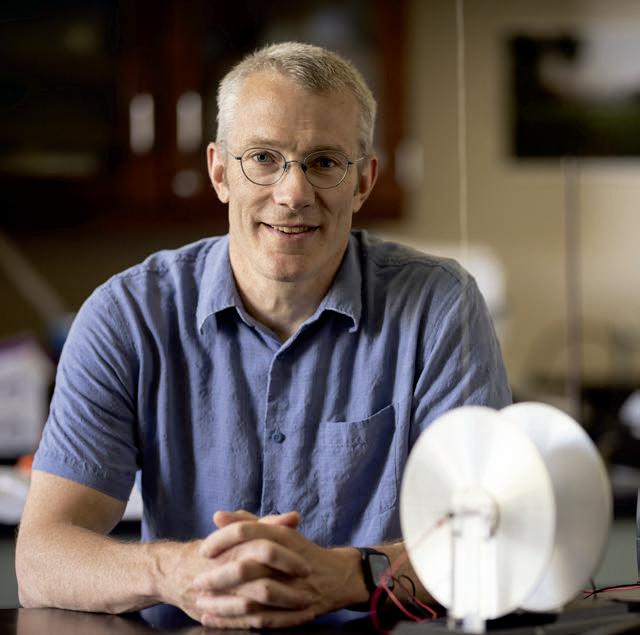
What do you enjoy about coaching?
I really enjoy the common storyline that the kids share—with each other and with the coaches. I also enjoy the science of coaching: Trying to figure out what it is I have to do throughout the weeks, throughout the months, throughout the season, to get them in their prime condition for specific races. And that’s always a challenge, because the human variable is included in that calculation.
What makes Groton special?

My first impression when I got here on campus was the confidence and comfort level the students had with each other as well as with adults in the community. There wasn’t a separation between them—it was a true community. So the small community and that overlap between education, athletics, and just living together is a very unique experience.
Tips for succeeding at Groton?
Understanding what your support systems are here and how to tap into them. Once students get into that, they can find success. But they have to buy into that, both for the really bright students and the students who struggle at times.
You oversee the Fab Lab, our maker space. Why is it so special?
The Fab Lab is an opportunity for kids to get their hands dirty, to try things out, to be comfortable in an environment where they can make mistakes and learn from those mistakes. Over the years, I’ve used the Fab Lab in my classes a nd with the robotics team, and I’ve worked with the Art Department on a couple different projects in there. And there’s always the random kid who has some sort of project that they want to work on. All of those are great experiences for the students.
Why history?
I believe that learning history is the vehicle through which students become informed about the world they live in, using the knowledge acquired and skills learned through the subject to enable them to walk through the world not only as more empathetic citizens but also more empowered to make the changes they desire for their own futures and the world they will live in.
Advice for young people
Strangely, it’s a math analogy: All experiences are data points in the graph of life, which means every experience, wonderful or difficult, is teaching us, giving us more “data” and therefore more confidence as we go through life.

How do you incorporate your love of film and music into your teaching?
It’s less of a “how” question and more of a “why” question to me: I think film and music can speak to your emotions and tell stories in a way that not all historical sources can. When trying to build empathy in the process of historical inquiry, these types of sources become more valuable than ever.
What do you like most about coaching?
The connection between a coach and a player is unique, where both know wholeheartedly that each depends on each other to reach a common goal through sport. This is an unadulterated relationship, free of assessment or judgment, and is one of the purest types of relationships you can have in this role as a boarding school teacher.
BA, Claremont McKenna College
MA, History, Harvard University
I-GEO (Interdisciplinary Global Education Opportunities) Committee

Squash and tennis coach
Dorm head
AB, Harvard
PhD, Ecology, University of Kent at Canterbury, U.K.
Geoffrey deC. Gund 1960 Teaching Chair
Henry and Wendy Breck Award for Distinguished Teaching
Curriculum Development Writer, “Planning for a Sustainable Future,”
Rutgers Center for Discrete Mathematics and Theoretical Computer Science
Trustee of the Groton Conservation Trust
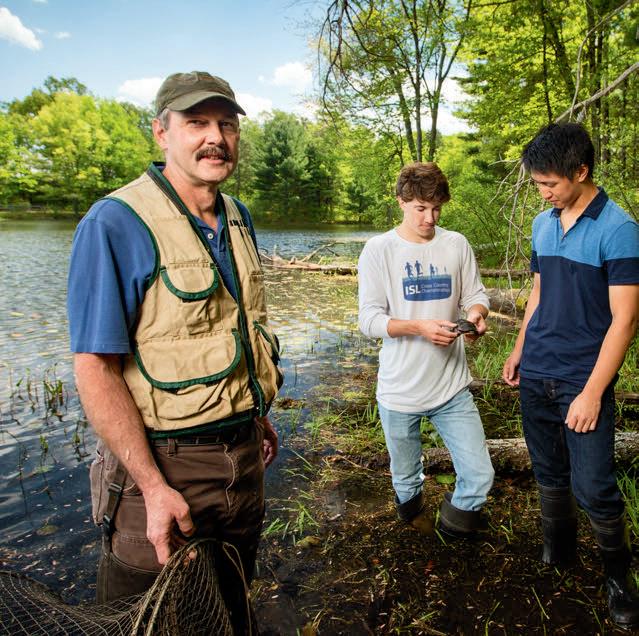

I take great pleasure in getting students outdoors to do original research and to see wildlife. I have seen students outdoors handling a vole or a snake, and it changes everything for them.
Students need to be involved in real science and not just learning the facts described by others. Many of the “facts” that I was taught thirty-five years ago have since been proven wrong, and new ideas have emerged that better explain the natural world. I want my students to think critically and to recognize that the facts are far less important than the process.
There is hope for the planet, but much effort will be required to save the natural systems upon which we depend. Over the years, we have worked to improve the habitat quality of some of Groton’s open spaces with the hope that these sites will provide refuges for plants and animals as they are displaced from other habitats. My hope is that Groton graduates will play a role in this battle, and indeed we have a large number of alums working in the renewable energy field and a growing number working as researchers in the protection of biodiversity.
Work to identify teachers who have similar interests to your own and chase them down mercilessly.
Why teach at Groton?

Teaching at Groton is a dream job. The faculty is friendly, accomplished, and inspiring. The students are exceptionally bright, funny, and refreshingly aware of and ready to discuss important issues relevant to our world today. On many occasions, my day has been made by having lunch with an advisee or sharing a laugh with a dorm member.
Before Groton, you did research in labs. What brought you to teaching?

I loved working with scientists from all over the world. However, doing experiments was repetitive and could be lonely. I discovered that math was my true passion and that I wanted to teach it at the high school level. Having a good experience in math during the high school years can be enough to change a student’s future interests and trajectory. I wanted to help students build their confidence while also nurturing their appreciation of mathematics. I strive to do both.
You’re a department head, teacher, coach : Why do you enjoy wearing so many hats? Being able to get to know my students so that they have multiple dimensions, instead of just the one I see in the classroom, maximizes our impact as teachers. Seeing a student in the classroom and then out on the soccer field or back in the dorm gives me a better perspective about the student as a whole person. As a result of this understanding I am better able to connect with and support each student, both in and out of the classroom.
BS, Gettysburg College
Harvard University Extension School, Master of Liberal Arts (ALM) in Mathematics for Teaching Soccer coach
What makes Groton special?


The small community! Being able to teach, coach, advise, and cross paths with the same kids makes it feel that much closer.
What’s your favorite place on campus?
That’s an easy one—the O’Brien rink in the winter. I am very fortunate to be the head coach of the girls varsity hockey team. Being able to spend each afternoon in the winter on the ice with an amazing group of kids makes my job so enjoyable.
Advice for young people. Get out and try new things. Go support your friends in their games, performances, and other events around campus. Sing at open mic. Dress up for Spirit Week. Perform in a One Act. Do it all!
What’s it like raising a family here?
It’s the absolute best. My two little girls love riding their bikes/scooters around the Circle, going to the Dining Hall for meals, and watching games throughout the year.
What do you like most about coaching?
We work with some of the most talented and motivated students in the classrooms. That same intensity carries over to the rink. They hold each other to high standards, keep each other accountable, and strive to be the best hockey players they can be each day.
BA, St. Lawrence University Hockey coach Dorm headI want to connect with them on a personal level outside of the classroom. I write the first letter—I want them to get to know me and feel comfortable with me and know that I care about who they are and their well-being. And I want to keep letterwriting alive in this day of social media.

To make students understand that words matter, to have them really think heavily about what those words mean.
Students gain a good sense of the world we live in. I want them to see themselves in characters. I want them to ask why a character makes decisions, why an author makes decisions.
The intimacy of the place allows for much deeper connections with students.
I do a lot of one-on-one with them. I go to their dorms, see how they live, meet their friends. I go to their games and recitals. I’m very much aware of how they’re doing in their classes. If they’re not doing well, I call them in and say, “Let’s make a plan.” As a group, we c ome together and just have fun.
BA, University of Fort Hare, South Africa
M.Ed, Lesley University
Post-Graduate Higher Diploma in Education, University of Witwatersrand Track and field coach

BS, Northwestern University
Former member, Tectonic Theater Project, New York City; cowrote two original plays
Studied Shakespearean acting at the British American Drama Academy, University of Washington Professional Director Training Program
Former Associate Director of Education, McCarter Theatre, Princeton, N.J.
Spent two summers at International Symposium for Directors, Spoleto, Italy (through Groton’s Dillon Fund)
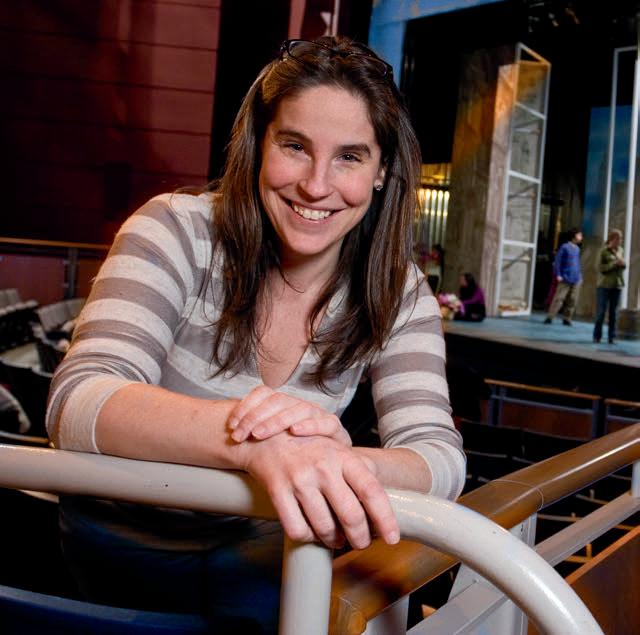
The process of creating
The arts enrich the lives of human beings in their souls as much as in their minds. Theater, for me, is all about process. The process of creating something with a group of young people is about the most fulfilling experience I can imagine. The students here tend to teach me as much as I teach them.
Favorite play
King Lear. King Lear is full of dramatic tension; no scene is unnecessary, no line is wasted, every character is fully drawn . . . it’s just perfect.
Character you most want to portray
That’s easy. There’s a rather obscure play called Eleemosynary, by Lee Blessing. It is about the relationship between three generations of women. I’ve played the mother, and I’ve coached a student performing the daughter. Someday I’d like to play the grandmother.
What made you fall in love with theater?
When I was a little girl, my grandmother took me to a Broadway play once a month. I remember seeing Barnum , a play that can appeal to both young people and adults. I saw it with my grandmother, brother, and my parents, and it was the first time as a kid that I felt l ike my parents and I were on the same page. That’s my goal in theater— to create a moment where people can find something in common.
WORDS OF WISDOM
Make space for yourself. I think it becomes easier to make good decisions if you reserve a piece of your day to get to know yourself as a person.


I love puzzles—number puzzles, logic puzzles, crosswords, jigsaw puzzles—I do them all, online, on paper, on a tabletop. A good puzzle clears my mind because I have to give myself to it completely. Math is like that, and I try to help kids develop the tools they need to see a math problem as a challenging puzzle. Working with students as they plan out their course loads is also like a puzzle—which piece fits where, and when.
When I graduated from college, I knew three things I would never do: go to medical school, go to business school, or be a teacher. After college, a friend hired me as a t utor at a ski academy in New Hampshire and, after two winters, I decided I ought to see whether I would enjoy a more traditional teaching set-up. I took a position at a boarding school, and on about day one-anda-half, I knew I loved what I was doing.
I’m not just the math teacher, grading papers, or the academic dean. I’m involved in kids’ lives in the dorms, on the athletic fields, in the Dining Hall, as an advisor. I’ve had remarkable conversations with students on the way to the Schoolhouse or practice or simply when passing in the hall.
First, learn to be efficient. Stay ahead of the details, a nd use those ten or twenty minutes of down time to do homework. If you make good use of those short time blocks, you’ll have all sorts of time to do other things. Second, get involved in a wide variety of activities. Finally, take advantage of how many inspiring people are here. Get to know as many students and teachers as you can.
BA, Dartmouth College
Thomas S. Williams Chair
Field hockey coach
Cofounder, Dartmouth College’s women’s hockey team

MFA, Photography, Yale University School of Art

Director, de Menil Gallery
Leader, Buddhist Sangha
Selected as one of eight best photographers under age thirty by Life magazine, 1987
Selected exhibitions include “Open Ends” at the Museum of Modern Art, New York, and “Contemporary American Photographers” at Jingshan Tushuguan Guangxhou, China

A lot of kids think they can’t do art, that they’re not artistic. They often surprise themselves with how talented they are, and then they become very excited to think of themselves as artists. I love helping them make that discovery.
I have traveled to India eight times. There I have seen firsthand the pain and suffering that exists in the world. It made me much more sensitive to the needs of other people.
If I didn’t teach, I probably would be an aid worker.
With traditional photography, you make more interesting mistakes. Unlike in digital photography, you can’t just delete them. They are there on the roll of film, and you get a chance to think about them. Most of the time they don’t work, but sometimes they are a gift that opens up new ways of seeing and thinking for the photographer.
We tend to measure ourselves by the ideals defined by society, but I think happiness comes from accepting our quirks and strengths and weaknesses. Hold on to your sense of wonder.
Mario Vargas Llosa is one of Latin America’s most significant novelists and essayists, and one of the leading authors of his generation. He won the Nobel Prize in Literature in 2010. I love the plots in his fiction, and his descriptions of the landscape and people are exactly the way I remember Peru.
In Peru, where I come from, you normally live with your family until you are married. I lived with my mother until I was thirtythree. I understand that’s very different from how it is in the United States.
Rowing helps keep things in perspective. Think about it—all that work to race just two thousand meters! It’s a lesson about just how much hard work goes into doing one small thing really well.
It’s a good thing to relax and be social— those are important parts of life—but there is work to do, too. So make sure you make good use of your time to stay on top of everything.
 S P A N I S H T E A C H E R / C O A C H
S P A N I S H T E A C H E R / C O A C H
BS, Universidad Inca Garcilaso de la Vega, Peru
MA, Spanish, Middlebury College
Squash coach
Managed Peru’s National Food Assistance Program
Former member, Peruvian National Rowing Team; won sixteen Peruvian national rowing titles

BA, St. Stephen’s College, Delhi, India
MA, Mathematics, Emmanuel College, University of Cambridge, England
Jonathan Choate ’60 Award for Excellence in Teaching and Coaching
Squash coach
Director of Global Education program, which provides student exchanges and experiential education through Global Education Opportunities (GEOs) in Africa, Asia, Europe, and South America

Our Global Education Opportunities (GEOs) inspire, develop character, and through experiential education provide exposure to a different way of life, which prepares students well for the global arena of the twenty-first century.
Math is an exact science with no room for error or doubt. No other science has theoretical proofs, crafted by humans, that through logic and reason provide an educational path that weaves through a variety of mathematical landscapes with hidden gems of elegance and beauty scattered along the way.

On the benefits of teachers who coach Students’ actions on the sports field bring forth components of their character that are not seen in t he classroom.
Harnessing individual talents into relationships and team unity so that success is defined by the team’s ability to pull together.
I find that I am always learning new information and techniques; the caliber of students at Groton drives me to be my very best. I deeply appreciate the flexibility that I have designing my curriculum and the support of my science colleagues.
A hard question! The two standouts are regeneration experiments with Planarians and transformation experiments using bacteria and GFP (green fluorescent protein).

I was a science major in college and worked in research for ten years before teaching. The events that occur at the cellular and molecular level absolutely amaze me because, when all of these small reactions are summed up, they allow the organism t o survive. The interface between science and technology is truly stunning and has allowed us to understand and visualize biological processes on a more intimate level.
It’s exciting when . . . Science is always exciting! The best examples are typically in AP Biology, when an article or finding is published that has direct correlation to a topic we have just covered. It allows the students to take it to another level. The ideas and questions that arise from these spontaneous and open discussions are amazing!
BA, Connecticut College
Jonathan Choate ’60 Award for Excellence in Teaching and Coaching

Coached girls ice hockey and lacrosse for 10+ years
Published in various scientific journals

Is there a secret to teaching art?

Art is a conversation between the artist and the viewer. Artists express themselves through a visual language that can teach, challenge, or relate to the viewer. The studio is a judgment-free space, where artists feel safe to take risks and express their ideas and have that conversation with the viewer. Artistic voice in combination with the knowledge of the technical skills needed to create great art is where the magic happens.
How does your own art inform your teaching?
I love to try new media and experiment. Through experimentation you fail, revise, and persevere. I try to encourage that mindset with my students.
What inspires you, either as an artist or a teacher?
My students. It is such a privilege to be part of a student’s artistic journey. I get to share in the excitement of their successes. I get to know each student by listening to their artistic voice. My inspiration is in seeing things in a fresh new way, through their eyes, and watching them take risks and try new things.
What makes Groton special?
Groton is special because it is an island of hope in our world. The students are full of optimism and promise. The faculty is full of knowledge and caring. Everyone has a place at Groton and an important contribution to make to the community.
Art reflects the world back on itself, therefore it is an important part of any community.
WORDS OF WISDOM
My parents. My mother was an elementary school teacher, and my dad was a Methodist minister. They put service first, and that was the example I grew up with.

At first I wanted to go to law school, but I got wait-listed. So I spent the summer teaching tennis, and then went to Spain with a friend. When I came home, I spent a year teaching Spanish and enjoyed it so much I decided to forget about law school.
Teaching is a creative profession. My best teachers made me feel like I was on a journey of learning with them. I try to inspire that same feeling in my students.
Team room “C” in the O’Brien Rink. I remember meeting there with the tennis team after an exciting victory over Exeter. We had just learned that our opponent in the finals of the A Division of the New England Interscholastic Championships would be Milton Academy. The kids let out this loud roar because that’s who they wanted— Milton had spoiled it for us so many times in the past. We went on to win the title.
Baltasar Gracián: “ Lo bueno, si breve dos veces bueno—what is good, if brief is twice as good.” I love when students can create beauty with a single sentence, a spontaneous smile, or, especially, with a backhand passing shot.
MA, Spanish Linguistics and Literature, University of Wisconsin
E. Roland Harriman Chair
Henry and Wendy Breck Award for Distinguished Teaching
Tennis coach
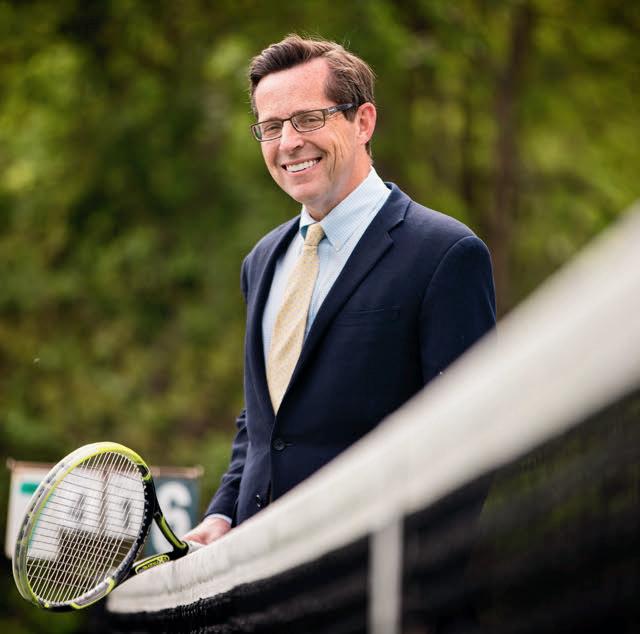
Author and publisher of Breaking the Barrier, a French, Spanish, and English textbook series; first Spanish series on Apple’s iBooks textbook platform
Consulted on College Board’s Advanced Placement program; served on Test Development Committee for Spanish AP language and literature examinations

